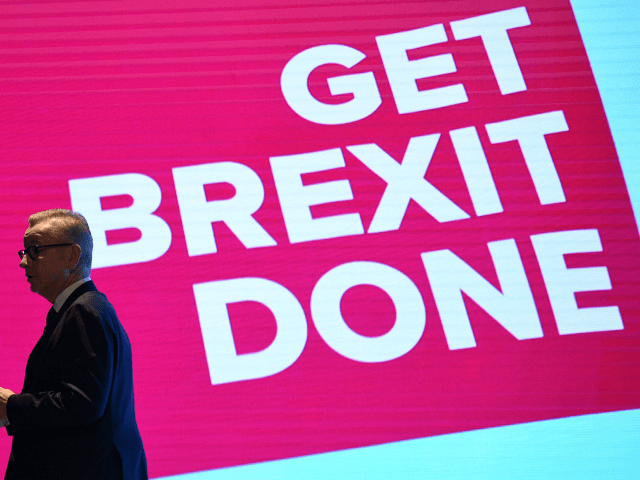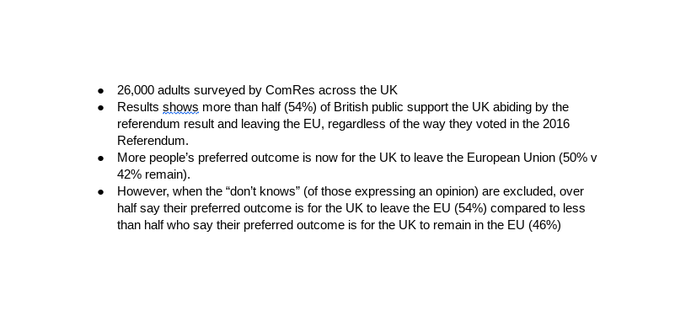The biggest public poll since the European Union membership referendum in 2016 shows a huge majority for honouring the Brexit vote.

The biggest public poll since the European Union membership referendum in 2016 shows a huge majority for honouring the Brexit vote.
The “demographically representative” poll of 26,000 British adults was conducted by the ComRes polling firm between October 2nd and October 14th for a Channel 5 programme titled Live Brexit Referendum: Do We Want No Deal?
It showed that 54 per cent of people “support the UK abiding by the referendum result and leaving the EU, regardless of the way they voted in the 2016 Referendum” when “don’t knows” are excluded — eight points clear of those who support remaining in the EU, on 46 per cent.
This indicates that, despite EU loyalist hopes that europhile teenagers turning 18 and Brexit-leaning older voters dying would “flip” the country for Remain if they waited long enough to force a re-run of the 2016 vote, support for Brexit has only hardened.
However, when the “don’t knows” (of those expressing an opinion) are excluded, over half say their preferred outcome is for the UK to leave the EU (54%) compared to less than half who say their preferred outcome is for the UK to remain in the EU (46%).
See ComRes's other Tweets
The poll did show that a generational divide on Brexit continues to exist, with 57 per cent of 18 to 24-year-olds wanting to stay in the European Union compared to 66 per cent of over-65s who want to leave it.
It is perhaps telling, however, that those heavily Brexit-leaning older voters are some of the few people old enough to have voted in both of the country’s European referendums, having voted heavily for remaining in the European Economic Community, as the European Union then was, as younger voters in 1975.
This suggests that the hope of EU leaders such as Guy Verhofstadt that a europhile younger generation will in the end take Britian back into the bloc — if it survives long enough — may be misplaced, as the older generation’s sentiments on European clearly shifted in a big way after experiencing four decades of entanglement in “the European project”.


